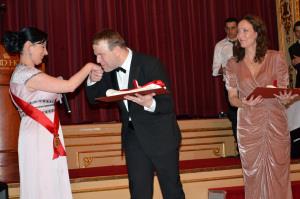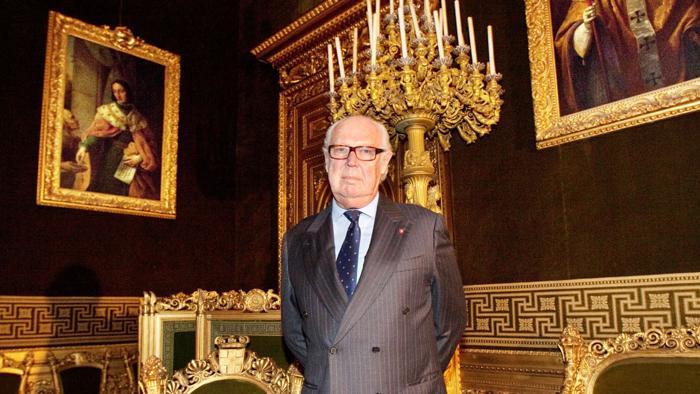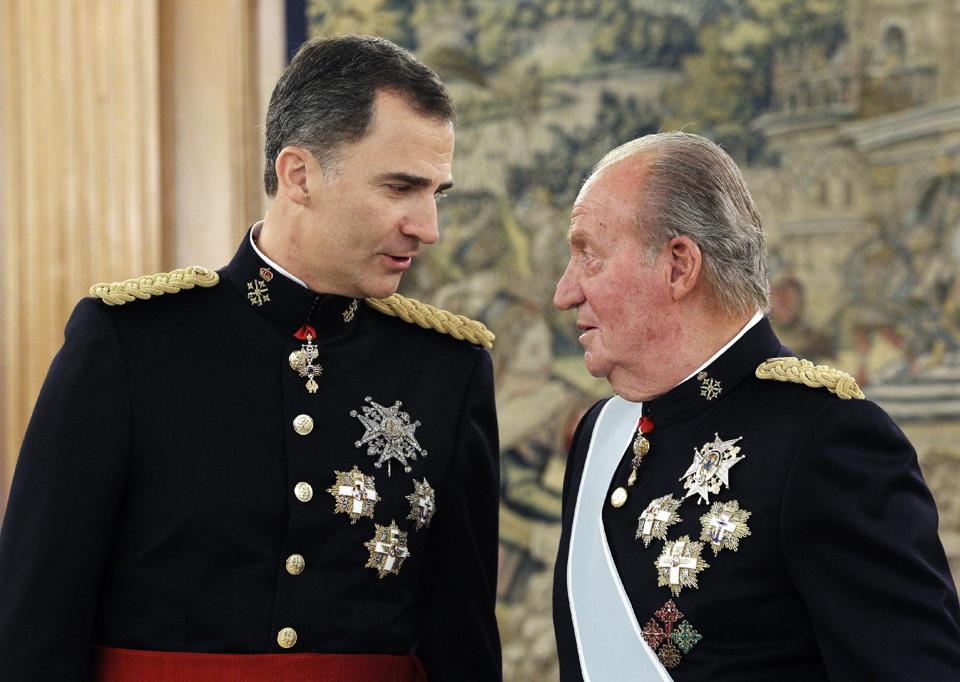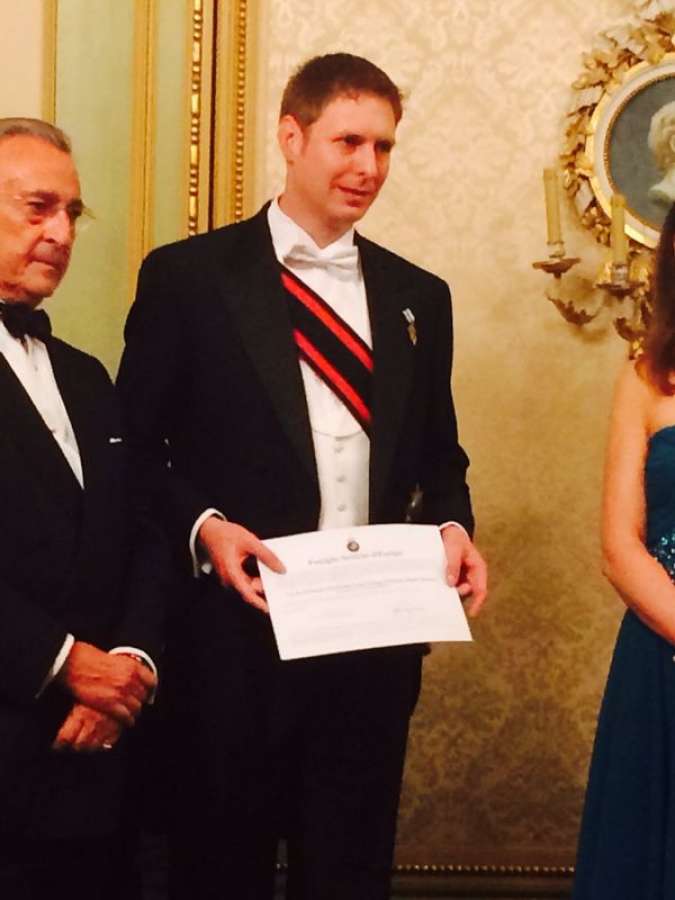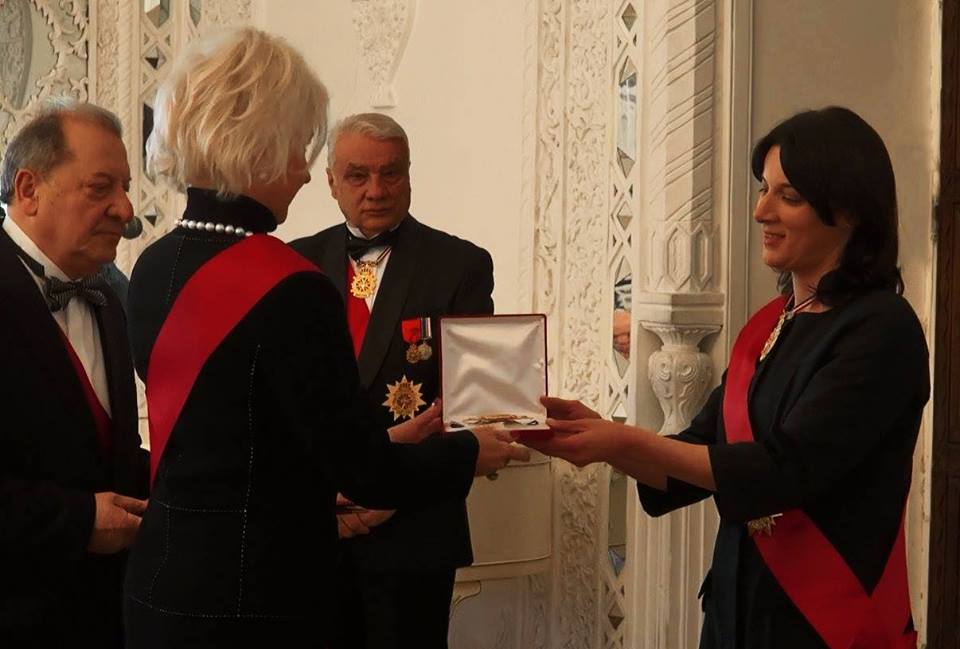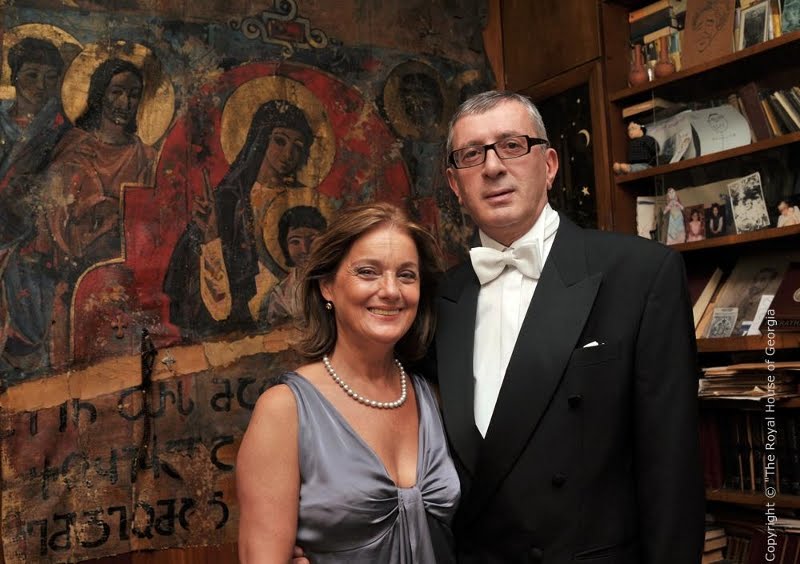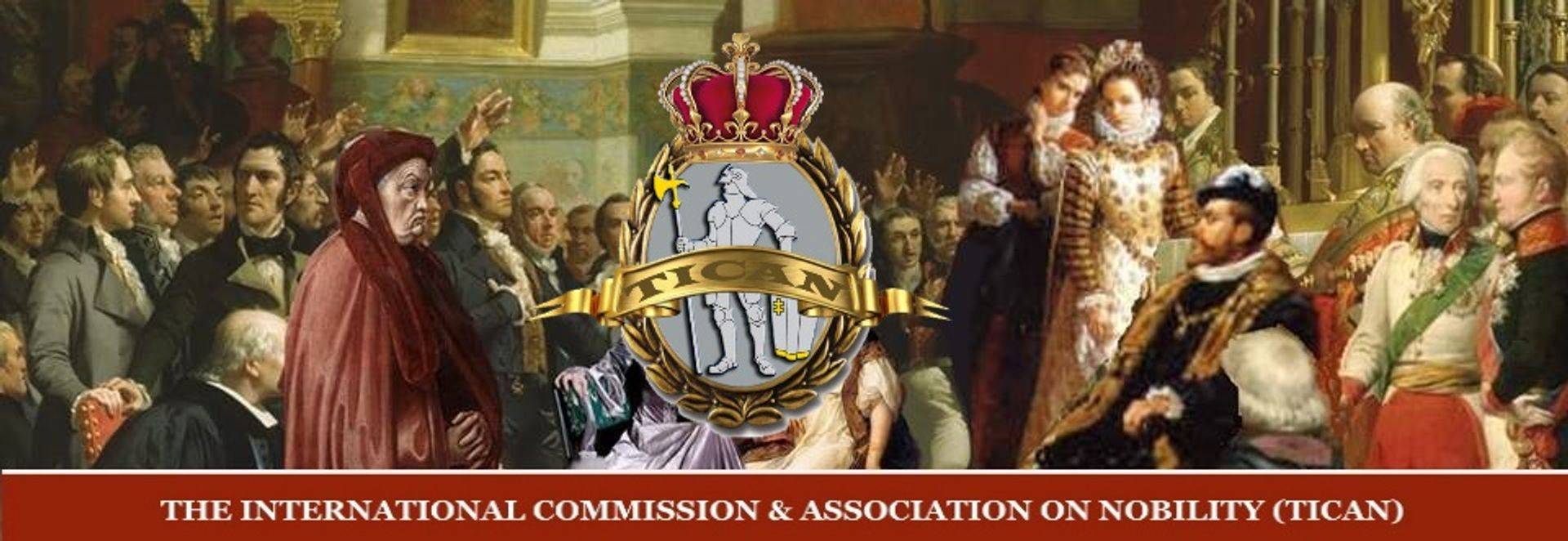
Title
Centuries after the American and French revolutions, a global market flourishes in false titles of nobility and self-styled orders of chivalry. This occurrence is because it provide to a general common desire to feel virtuous about oneself, a sense of well-being dependent on the drive to assert one's distinctiveness and the yearning for recognition.

With few exceptions, self-styled orders began to arise in the middle of the eighteenth century, and they continue to emerge. Some are short-lived and only last a few decades. There are differing opinions about what principles or rules should be applied to distinguish an organisation as a genuine chivalric order or a merely self-styled one.
FALSE TITLES OF NOBILITY

Fasle titles of nobility are supposed titles of nobility that have been fabricated and are not recognized by any government and were not so recognized in the past, even in countries in which titles of nobility once existed or still exist. They have received an increasing amount of press attention, as the number of schemes that attempt to sell these titles has increased. False titles are also sometimes connected to self-styled orders of chivalry.
All Royal and noble families became noble or royal at some point in the history. This came through various means, by peaceful purchase, by absolute force and by stratagem or trickery. Therefore, if a non-royal or non-noble person obtains a noble title, which was legally, officially and legitimately conveyed upon him or her and it was accepted and approved by the Sovereign Head of the appropriate family, then this person will be recognized as a noble or royal person of being the actual owner of a true and legitimate noble or royal title.
We remain stunned by the very large number of titles and honors which are reported on some Internet sites related to self-styled princes, descendants and pretenders. The profusion of principalities, dedications, decorations leaves most surprised by the fervid imagination of those who are fascinated by what they presume to be the monarchy and chivalry world than for the positions listed.
The alleged princes of today’s list of imaginative titles that have been created by its imaginative ancestors, stirring and mixing which are often used without real titles used by the genuine ancient rulers of state to which they refer. Sometimes, unfortunately, you can not even understand in which regions of the world are connected with the thrones of which is claimed to be the custodians, they do not report pedigrees or relationships; genealogies are sometimes broken and full of gaps that make them useless. And in general, even when apparently complete forms from father to son, a few precautions are sufficient for an expert to see if its names are fakes and added.
Furthermore, it is absurd to speak of “Royal House in exile” because no government has issued sentences against the presumed princes. And is even humorous to define as Ambassador or Consul General, these titles are reserved to State and not to individuals. Not even a real King, non Head State, could grant them. Giving and receiving designations of this kind, means to be completely ignorant of law, history and heraldry.
A self-style prince claims that has recognitions from the Pope, Queen Elizabeth II or some other royal.
Sovereignty is neither created by recognition nor destroyed by non recognition.” (The New Encyclopedia Britannica, edition 15, part 3, vol 17, 1981, p. 312) International law denies that diplomatic or political recognition confers sovereignty. Also, in the past many title holders purposely wrote letters to various royals and got them to write back using their titles. Practically all royals and most orders did not investigate the claims of those who join. Such letters are merely courtesies, courtesy letters, not certifications of fact. They do not make a claim true or false.
Many title holders, by getting so-called apostolic blessings from the Pope from various companies, who do not check anything out, but use whatever name or title you give them, thus making it look like the Pope has certified them as real. This same phony ploy was used with Queen Elizabeth II, who gets thousands of letters each day and tries to return every single letter. No one has time to check them out. They use the identifying information they are given to write back. Obviously, such a letter or blessing certificate is meaningless in terms of title, validity and authenticity.
In addition, self-styled princes love to honor each other thinking that somehow, this makes their claims real and genuine.
Changes of name
Some companies purport to sell unsuspecting individuals a title when in fact they do no more than offer them the facility to change their name. Such an individual adopts the purported title, e.g. "Sir" or "Lord", as a forename rather than receiving any formal title. The Identity and Passport Service is aware of this scam and will place an official observation in the individual's passport stating that the purported title is a name rather than the person's title. In essence, such an individual becomes Mr. Sir John Smith or Mr. Lord John Smith, for example, as their title has in fact not changed at all.
The act of legally changing one's name to add a title by deed poll or some other method does not create a legitimate or authentic title. This is make believe or phony.
Become the Laird, Lord or Lady of Glencoe, etc.
The purchase of land in Scotland is not sufficient, per se, to qualify anyone to legally use the title of Laird. The title ‘Lord’ is a ‘Peerage title’ (or a courtsy title of a Scottish ‘Law Lord’) and although it is true to say that the word Laird does derive from Lavert, which is the same root as the word Lord, a genuinely recognized Laird, is a member of the Nobilitas Minora, whereas those who are legally entitled to call themselves Lord, belong to the Nobilitas Majora, or the Peerage. The two terms are certainly not interchangeable.
A Lairdship is, in itself, a title which is linked to the Land, but for it to become a title and part of the name of the individual who owns the land, it is necessary to petition Scotland’s supreme herald, the Lord Lyon King of Arms, for the title to be officially recognised. The Lord Lyon does not actually recognise anyone as a Laird
http://www.scots-titles.com/fake-lairds-lords
Title of Nobility from a Micronations
No micronation has any real, genuine or authentic right to bestow titles of nobility or bestow knighthoods. They are fantasy countries---"These nations usually exist only on paper, on the Internet, or in the minds of their creators." (http://en.wikipedia.org/wiki/Micronations) They have no recognized or actual authority.
Religious Organizations
A new approach to the traffic in titles is for a religious or secular organization to claim that it can “restore " ancient titles of nobility or royalty for a modern person who might be in the "family line"--and, of course, an exchange of money is part of the "restoration." However, a religious organization cannot "rehabilitate" a secular title. Indeed, a secular organization, even a royal house, cannot "restore" a title over which it had no original control.
Moreover, one must also be very wary of any religious organization claiming to be a "church" and which claims authority to grant titles of royalty or nobility.
Private Titles and Decorations
Private titles, knighthoods and condecorations received in a club, fraternity, church or other organization are not to be used in public or on the internet unless qualified as private. Such titles, knighthoods and condecorations are not genuine and authentic, outside of the organizations that made them, because they have nothing to do with the bona fide and real nobility or royalty.
Traditional leaders
Although the authorities tend to cooperate with these traditional leaderships, they are, in most cases, not a formal part of the hosting government system nor are they authorized to exercise any real governmental powers and traditional leaders are not subject to international law.
Traditional leaders grants honorific titles to persons working within the leadership, corresponding to the ancient governmental, noble and royal titles used in the kingdom when it was a de facto or de jure sovereign entity. These titles are purely honorific and must not be understood or even used as titles of nobility or Royalty under international law.
Honorific Titles
Honorific titles are generally a sign of respect, and run the gamut from everyday life, clergy and the monarchy to military and academia. Such titles may or may not be tied to a person's achievements; some connote a rank the individual has reached in society or within his organization, while others recognize contributions a person has made to a particular field.
All major Universities and Religions today bestow Honorary Degrees upon the Rich and Famous for huge sums of money they donate or bring through their association with that organization. Rarely will these major groups give equally deserving persons of lesser means such recognition.
Fons Honorum
In recent decades a degree of confusion seems to have developed over who may bestow honors; this is at least partly due to the emergence of hundreds of false orders.
Today the legitimate founts of honour who may bestow knighthood are the lawful heads of existing states, heads of non-reigning royal (sovereign) dynasties recognized at the time of the Congress of Vienna in 1814 (hence the numerous German dynasties but not the many soi-disant "pretenders" to the long-vacant Throne of Constantinople), the Holy See (the Papacy), certain de jure governments in exile, a few Orthodox Christian patriarchs and bishops, and the grand masters of a few historical military-religious orders of chivalry (the Order of Malta most notably).
How To Become a Noble
Perhaps you always have dreamed of putting "Sir" or "Lady" in front of your name. You may have dallied with the thought of accepting a knighthood, but perhaps you wanted a title that came with land or a seat in parliament. With the number of monarchies in the world dwindling, you will probably need to move and change your citizenship, if you are not already living under a monarchy.
The custom of granting noble titles began well before Medieval times when society had very definite lines separating poor commoners from richer landowners. Many kings and queens believed that by bestowing a title upon certain subjects, this act would make them owe lifelong allegiance to the monarchy. Titles of nobility bestowed ranged from Lord and Lady, Count and Countess to Baron and Baronness, and Viscount and Viscountess. But in the 21st century, having a noble title may seem impressive, but in reality nobility does not guarantee an individual any tangible benefits.
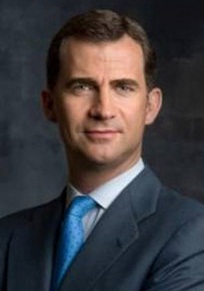 King Felipe VI of Spain favors artists and politicians when he is granting titles of nobility, but you will have to become a citizen of Spain in order to qualify for the lofty recognition of being granted the titles of Baron or Duke.
King Felipe VI of Spain favors artists and politicians when he is granting titles of nobility, but you will have to become a citizen of Spain in order to qualify for the lofty recognition of being granted the titles of Baron or Duke.
Learn Spanish and move to Madrid. King Juan Carlos of Spain still has the power to grant titles of nobility, and historically, he has chosen prominent politicians and artists. Become a citizen of Spain and excel in the arts or work your way up through regional parliaments to the federal senate. If you make it to Prime Minister and the king likes you, you are likely to get a title like baron or higher. Don Adolfo Suárez y González was granted the title of First Duke of Suarez in recognition of his service as prime minister.

Becoming a subject of the British Empire is the second route to nobility. Queen Elizabeth II of Great Britain made Margaret Thatcher a baroness when she served as prime minister, but Tony Blair was not offered a title. You might have a better chance of getting yourself adopted by a childless noble family, however noble titles distributed in the past quarter century have been very scarce.
What makes becoming a noble in the United Kingdom tricky is that Queen Elizabeth II is only in the habit of granting new knighthoods lately, and technically, that's not a title of nobility. The only British citizens to have been offered new titles of nobility in the past few decades were all prime ministers, and that's a longer, harder road with less likelihood of becoming a noble than in Spain.

Noble’s titles are given by King Albert II of Belgium on an annual basis, but only to Belgian citizens. Albert is known for honoring people in a wide range of occupations who have distinguished themselves, including statesmen, businessmen, athletes, scientists and entertainers.
You will need to move to Brussels and learn French. You may eventually have to learn Dutch/Flemish as well because it is spoken by most Northern Belgians. Once you have the languages mastered, you will need to become a Belgian citizen.

If you are looking on a title of nobility in Norway, Sweden, Denmark or the Netherlands, you just have to fall in love with the right person, someone who already has a noble title because these countries are no longer granting new titles, whether you are a state citizen or not.
The internet is full with various companies purporting to offer noble titles for a price, which can run into the thousands of dollars, but not all of these enterprises are legitimate. Your vanity may get you a certificate along with a noble sounding title but not nothing else. Such titles are worthless and are not Internationally recognition.These titles are not legitimate or authentic title of nobility.
Although not recognized by any international treaty, some independent organization exists that seeks to provide criteria against which to judge Orders of Chivalry or Nobility, though neither their decisions nor the criteria they employs to reach those decisions are universally accepted. These Organizations have no standing in international law and may not be acknowledged by any present government.
For example, the highest Order of Chivalry in the power of the Vatican to confer is the most distinguished and rare Papal Order of Christ, yet the Order of Christ is not "recognized" within the boundaries of Great Britain, which is not a Roman Catholic country does not recognize this distinguished Papal Order. Great Britain "recognizes" the Vatican as a City-State and has exchanged ambassadors.
The Prince of Monaco confers, from time to time, the Order of Grimaldi, a most coveted knighthood, yet the distinguished dynastic and rarely-conferred Order is not "recognized" by any government other than Monaco itself.
There are a number of orders of knighthood, such as the Knights of Columbus, which have no background in chivalry, but are nonetheless worthwhile organizations. These are usually fraternal organizations. People in these organizations can be called knights, but it is not quite the same thing as being granted a title by monarch or historical order of chivalry.
The Knights of Columbus is the world's largest Catholic fraternal service organization. Founded in the United States in 1882, it is named in honor of Christopher Columbus. There are more than 1.8 million members in 15,000 councils, with nearly 200 councils on college campuses.
The Constantinian Order is recognised as a non-profit charitable organisation in several nations (for example in Italy, the United States, the United Kingdom and Switzerland). Such recognition does not constitute a juridical position regarding its history or the headship of the royal family. Most nations do not take a strong official position regarding headship of a non-regnant dynasty after the exiled sovereign is deceased, especially if diplomatic relations exist with a successor state. Over the years, both Infante Carlos and Prince Ferdinando have bestowed the Order of Saint Januarius (San Gennaro) and the Collar of the Constantinian Order on various pretenders and exiled monarchs. King Umberto II of Italy accepted both distinguished orders from the Neapolitan (not the Spanish) grand master.
To discourse about Chivalry and Knightly Orders today could seem out of date and in contrast with current political, philosophical and social orientation – fed and developed in logic of demagogic egalitarianism – which wants to deny History and Traditions.
There are a number of chivalric Orders that exist today. The British monarchy still grants knighthoods, as does the Papacy and the Knights of Malta (Order of St. John).
The Sovereign Military Hospitaller Order of Saint John of Jerusalem of Rhodes and of Malta (Italian: Sovrano Militare Ordine Ospedaliero di San Giovanni di Gerusalemme di Rodi e di Malta), also known as the Sovereign Military Order of Malta (SMOM), Order of Malta or Knights of Malta, is a Roman Catholic lay religious order, traditionally of military, chivalrous, noble nature. It is the world's oldest surviving order of chivalry. The Sovereign Military Order of Malta is headquartered in Rome, Italy, and is widely considered a sovereign subject of international law.
It is evident in all the different clubs and societies that are formed to attempt to recreate knighthood. We also see the honor of knighthood being cheapened, by titles being bestowed on undeserving individuals. In the meantime the true knights go largely unobserved, and unappreciated.
RECCOMENDATION
We recommend to pay attention to the alleged institutions that are nothing more than pseudo-chivalric orders, which also wish to qualify as: Order of Malta, S. Sepulchre, S. John, Kings, Ecumenical, etc.. Just to mention that most imitations rage, to mislead the unwary and adepts, by creating confusion in relation to the legitimate Sovereign Military Order of Malta (SMOM), the Equestrian Order of the Holy Sepulchre of Jerusalem, the Sacred Military Constantinian Ord of Saint George, etc.
Genuine Orders
_svg.png)
The Sovereign Military Hospitaller Order of Saint John of Jerusalem of Rhodes and of Malta
(Italian: Sovrano Militare Ordine Ospedaliero di San Giovanni di Gerusalemme di Rodi e di Malta), also known as the Sovereign Military Order of Malta (SMOM), Order of Malta or Knights of Malta, is a Roman Catholic lay religious order, traditionally of military, chivalrous, noble nature. It is the world's oldest surviving order of chivalry. The Sovereign Military Order of Malta is headquartered in Rome, Italy, and is widely considered a sovereign subject of international (Official Web site: http://www.orderofmalta.int/?lang=en).
Drawing Coat of Arms with special permit of the Author: Mathieu CHAINE.

The Equestrian Order of the Holy Sepulchre of Jerusalem
(lat.: Ordo Equestris Sancti Sepulcri Hierosolymitani, OESSH) is a Roman Catholic order of knighthood under the protection of the pope. It traces its roots to Duke Godfrey of Bouillon, principal leader of the First Crusade. In 1496, PopeAlexander VI created the office of Grand Master of the Order, and the office vested in the papacy. The office of Grand Master remained vested in the papacy until 1949. Since then a cardinal has been grand master. The Pope is sovereign of the Order, and it enjoys the protection of the Holy See and has its legal seat at Vatican City. (Official Vatican Web site:
http://www.vatican.va/roman_curia/institutions_connected/oessh/index_en.htm).
Drawing Coat of Arms with special permit of the Author: Mathieu CHAINE.

The Sacred Military Constantinian Order of Saint George
The Sacred Military Constantinian Order of Saint Georgeis a Roman Catholic order of chivalry. It was fictively established by Constantine the Great, though in reality it was founded between 1520 and 1545 by two brothers of the Angeli Comneni family. Members of the Angeli Comneni family remained grand masters throughout the sixteenth and seventeenth centuries. In 1699 Francesco Farnese, Duke of Parma was recognised as grand master. In 1731, his son and successor, Antonio Farnese, Duke of Parma, died without male heirs. He was succeeded by the first Bourbon grand master Charles, Duke of Parma (later King Charles III of Spain). Since that time members of the House of Bourbon have been grand masters of the order. (Web site: http://www.borbone-due-sicilie.org/ and http://www.realcasadiborbone.it/).
_svg.png)
The Order of Saints Maurice and Lazarus
The Order of Saints Maurice and Lazarus is an order of chivalry awarded by the House of Savoy, the heads of which were formerly Kings of Italy. The order was formed by a union of the original Order of St Lazarus and the Order of Saint Maurice in 1572. The generally-accepted Grand Master of the Order is Vittorio Emanuele, Prince of Naples, the current head of the House of Savoy. In 2006, Vittorio Emanuele's cousin, Amedeo of Aosta, declared himself Head of the Savoy dynasty and thus Grand Master de jure. For this reason the grand magistry is now contested.
(http://www.chivalricorders.org/orders/italian/maurice.htm see also:
http://www.savoydelegation-usa.org/).
Nobiliary laws and Regulations
In some countries the nobility is a subject of public law (Belgium, Finland, Netherlands, and in Spain only regarding the titled nobility). In other countries this is not the case, and then the nobility may have organized itself in one or more associations in order to have an institution to handle nobiliary issues. It is therefore of the utmost importance for every noble family to define and clarify under which legislation, or under which set of rules or regulations whether codified or not, they are a subject.
Nobiliary law is a complex and multi-faceted subject. It is often necessary to do extensive research in order to establish which rules apply to a specific noble family. A starting place can be to collect relevant literature from (or about) the country where the family is known (or believed) to have been ennobled (or first recognized as noble).
Maybe the most important thing to remember about nobiliary law is that it is not the same as public law. It may well be possible, according to national legislation, for a non-noble person to assume a noble surname, but this does not make him member of the nobility. A person can only be a member of the nobility if they are so according to nobiliary law, whether this is in harmony with public law or not.
The world is full of critics but we welcome you to write to us and make your comments. Additions and corrections will be gratefully accepted, information, addresses or photos are welcome.

